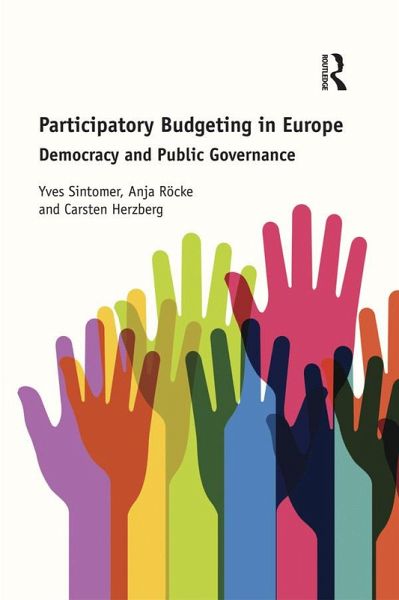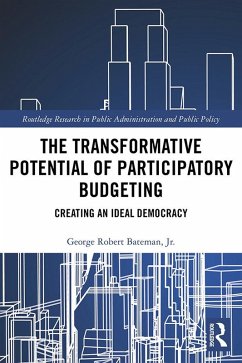
Participatory Budgeting in Europe (eBook, PDF)
Democracy and public governance
Versandkostenfrei!
Sofort per Download lieferbar
41,95 €
inkl. MwSt.
Weitere Ausgaben:

PAYBACK Punkte
21 °P sammeln!
Can participatory budgeting help make public services really work for the public? Incorporating a range of experiments in ten different countries, this book provides the first comprehensive analysis of participatory budgeting in Europe and the effect it has had on democracy, the modernization of local government, social justice, gender mainstreaming and sustainable development. By focussing on the first decade of European participatory budgeting and analysing the results and the challenges affecting the agenda today it provides a critical appraisal of the participatory model. Detailed comparis...
Can participatory budgeting help make public services really work for the public? Incorporating a range of experiments in ten different countries, this book provides the first comprehensive analysis of participatory budgeting in Europe and the effect it has had on democracy, the modernization of local government, social justice, gender mainstreaming and sustainable development. By focussing on the first decade of European participatory budgeting and analysing the results and the challenges affecting the agenda today it provides a critical appraisal of the participatory model. Detailed comparisons of European cases expose similarities and differences between political cultures and offer a strong empirical basis to discuss the theories of deliberative and participatory democracy and reveal contradictory tendencies between political systems, public administrations and democratic practices.
Dieser Download kann aus rechtlichen Gründen nur mit Rechnungsadresse in A, B, BG, CY, CZ, D, DK, EW, E, FIN, F, GR, HR, H, IRL, I, LT, L, LR, M, NL, PL, P, R, S, SLO, SK ausgeliefert werden.













